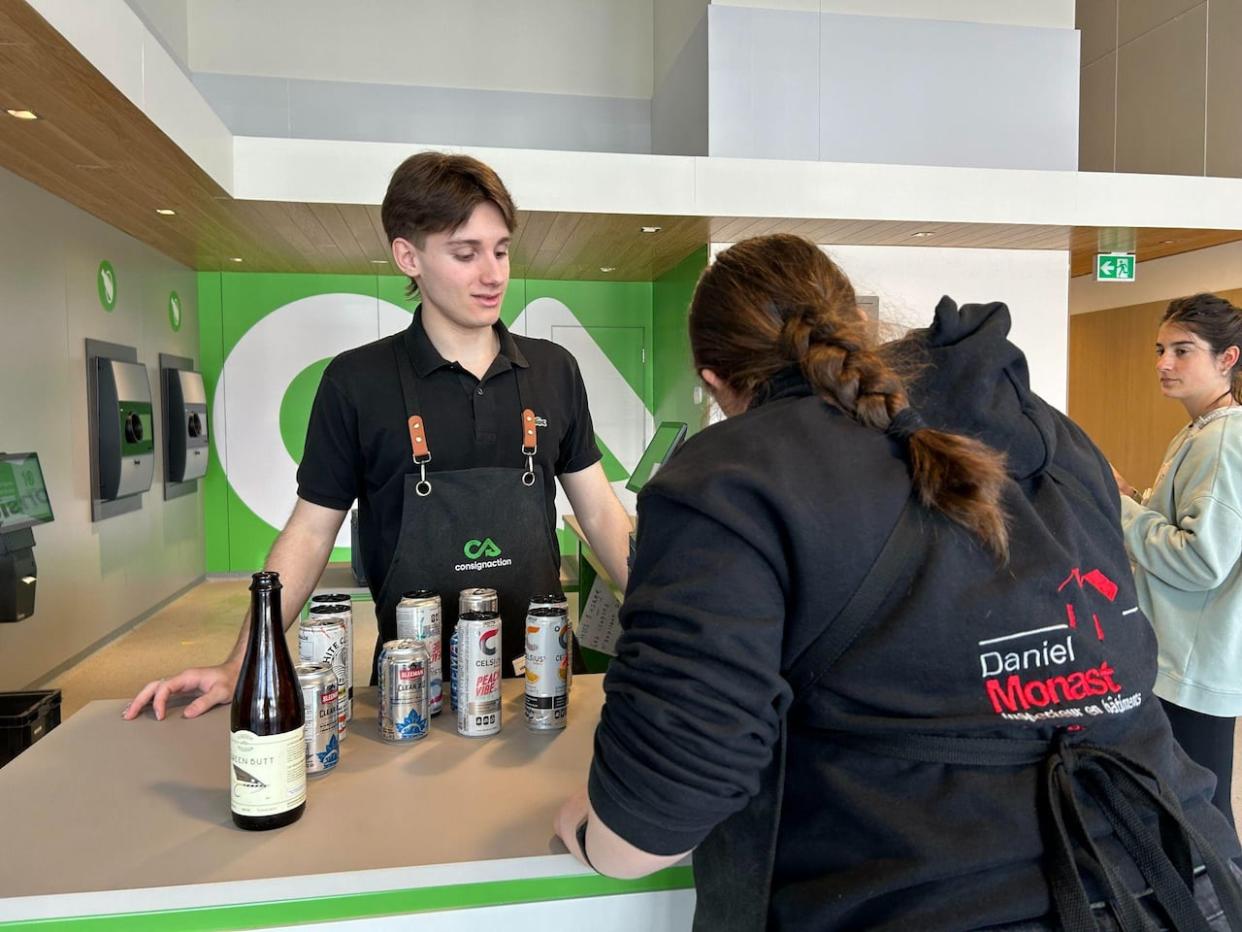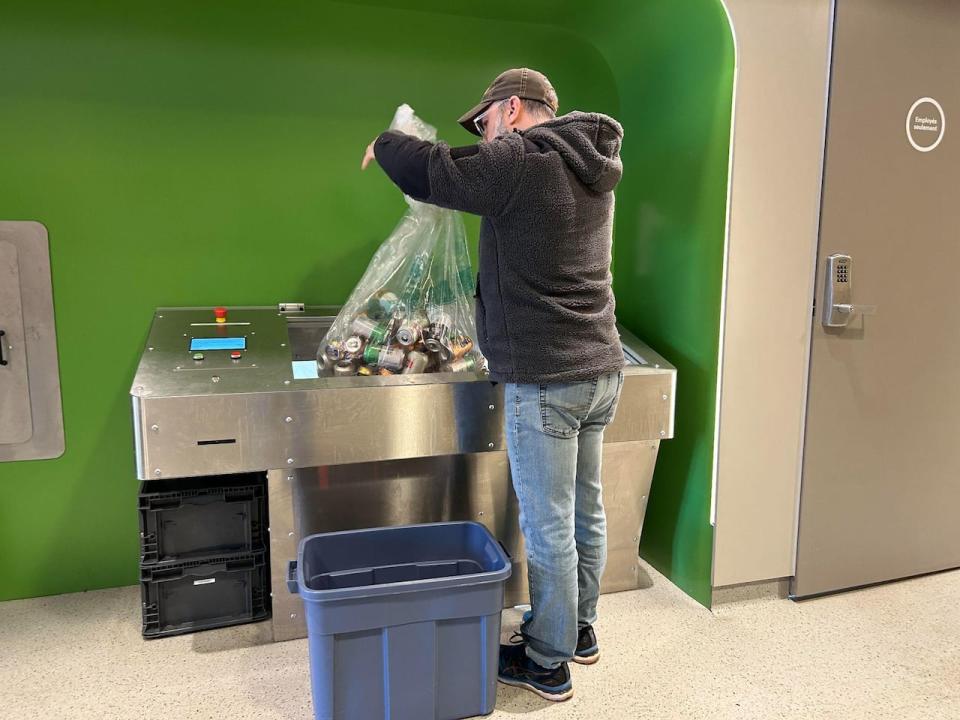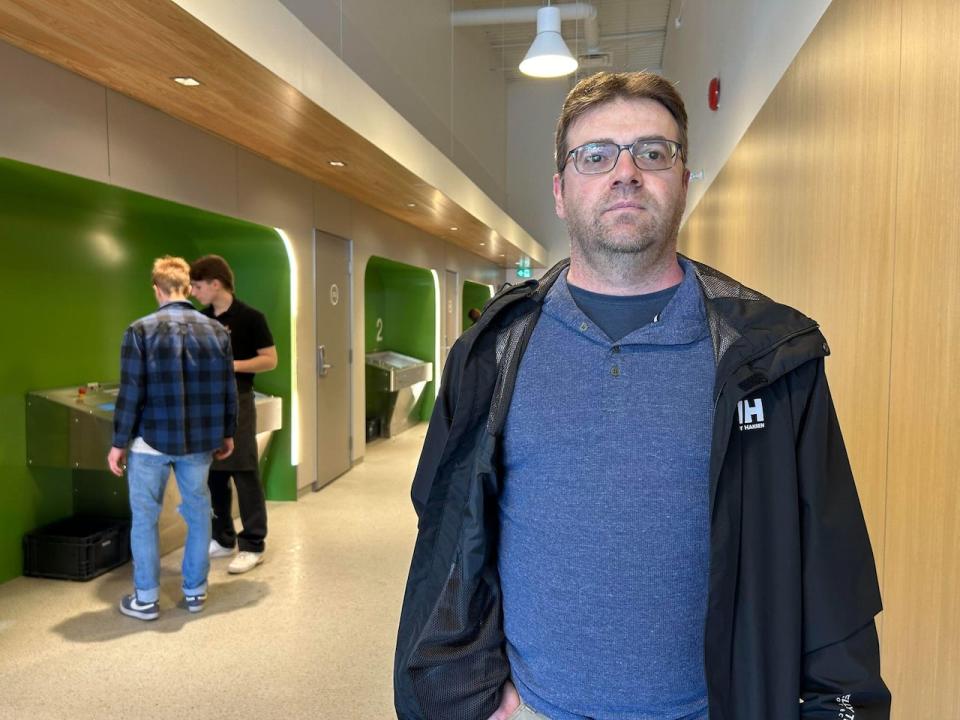Montreal gets first Consignaction centre as part of Quebec's new container deposit system

After years of delays to the rollout of Quebec's expanded bottle deposit system, Montreal finally has its long-awaited Consignaction centre.
The centre in the borough of Rosemont-La Petite-Patrie opened on Friday, the second centre in Quebec after one opened in Granby, Que., earlier this month.
Consignaction, which manages the new deposit system, plans to open 200 locations by next spring.
Maryse Taupier, senior operations director at Consignaction, says about 250 people come to the Granby centre each day to recycle their containers.
"The important thing is that on March 1, 2025, there will be Consignaction return locations in the main regions of Quebec to be able to absorb the volumes that will come in at that time," she said.
The new system was originally planned for the fall of 2022, before being postponed to spring of 2023.
Quebec Environment Minister Benoit Charette blamed the delay on infrastructure, such as sorting equipment, not being ready.

A user recycles his containers at the Consignaction deposit centre in Granby, Que. (Rowan Kennedy/CBC)
Getting the hang of it, one container at a time
Xavier Prince works at the Granby centre. His job is to explain how the new system works to visitors.
They press the green button, dump the cans and bottles into the machine and hit the red button.
The machines automatically sort the containers and spit out a receipt for your refund at a self-checkout kiosk.
At first, it may seem complicated to new users, he says, but they quickly get the hang of it.
"We guide them step by step to accomplish it," said Prince.
David Chaput, who came to offload some recyclable containers, says he much prefers the new system to lining up at the grocery store with bags full of cans and bottles like he used to do.
"It's a lot faster, it's a lot easier, it's cleaner. I don't have to manage anything. It's a perfect system," he said.

‘It's a lot faster, it's a lot easier, it's cleaner and I don't have to manage anything. So it's a perfect system,’ said new user David Chaput. (Rowan Kennedy/CBC)
'Better late than never'
Karel Ménard, executive director of the Quebec Coalition for Ecological Waste Management, is pleased to see the new centres open, even if behind schedule.
"Better late than never," he said, adding that Quebec's outgoing system is outdated and in need of modernization.
"The deposit system is one of the most efficient systems in the world because you collect cans or bottles without being contaminated by other materials like it is with curbside collection," he said.
With the new system, glass, metal and plastic will be collected separately.
Ménard believes Quebec is now on its way to meeting the target of 200 collection centres.
The office of Quebec's environment minister told CBC News that it's working with its partners to make sure the expansion project is completed on time and up and running by next March.
"The modernization of the deposit system is a major undertaking that will ultimately lead to the recovery of over 5 billion containers," it said in a statement.
Last November, Quebec upped the deposit for many types of containers.
The deposit on 355 ml cans rose from five to 10 cents. The change also meant that 100 ml cans became refundable for the same amount.
But that 10-cent amount became standardized — even for larger cans of 473 ml or larger (commonly known as tall cans or king cans), which used to be worth 20 cents.
By March 2025, glass bottles over 500 ml and over will be subject to a refundable 25 cent deposit.

